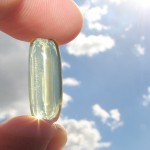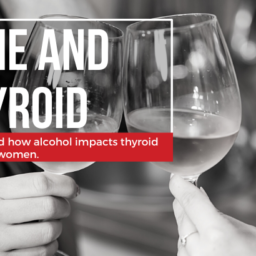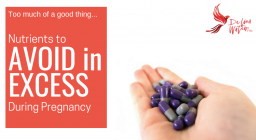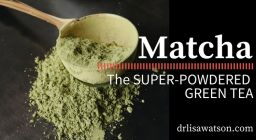
Psoriasis is a common condition, affecting more than 50 000 people in Toronto alone. Both men and women are equally impacted by psoriasis and more than one-third of people with psoriasis have a family member who also has it.
What is Psoriasis?
Psoriasis is a chronic, immune-mediated inflammatory condition that manifests as red, scaly skin rashes (known as “plaques”) that occur on the knees, elbows, scalp and other areas of the body. The underlying issue that leads to psoriasis is immune activation of T-cells leading to release of inflammatory mediators and hyper-proliferation of keratinocytes.
Naturopathic Treatment of Psoriasis
Naturopathic treatment of psoriasis works to address the underlying causes of psoriasis – immune dysfunction and inflammation. Correcting the imbalances that lead to psoriasis plaques and arthritis can significantly improve outcomes and promote optimal health. Listed below are ten natural treatment options for psoriasis.
Ten Natural Treatment Options for Psoriasis
1. Anti-Inflammatory Diet
Food is a major source of inflammatory particles for our body. Some foods promote inflammation, while other foods inhibit inflammation. Foods that cause inflammation include: dairy, red meats, partially hydrogenated vegetable oils, safflower oil, canola oil and trans-fats. These foods should be reduced or eliminated in the diet.
Foods that reduce inflammation include the omega 3 fatty acids, many spices, and most fruits and vegetables. A vegetarian diet, or diet rich in fruits and vegetables can decrease inflammation and symptoms of psoriasis.
2. Identification and Elimination of Food Allergies and Sensitivities
In addition to foods that contain compounds known to lead to inflammation, individual food sensitivities or allergies can also cause inflammation. Consuming foods that we have a sensitivity to leads to an immune response in our body, ultimately leading to inflammation. Determining your food sensitivities and eliminating them can profoundly decrease the symptoms of psoriasis. The most common food sensitivities found in people with psoriasis include gluten (wheat), eggs and dairy.
3. Healthy Weight Loss
People who are overweight tend to have worse symptoms of psoriasis, likely due to the increase in inflammation from insulin imbalance and the metabolic effects of being overweight. Achieving and maintaining a healthy body weight is an important lifestyle goal for all people with psoriasis and something your Naturopathic Doctor can help you do in a healthy and long-lasting way.
4. Manage Stress
Long term stress can deplete our body’s ability to produce cortisol, one of the most powerful natural anti-inflammatories in our body. Psoriasis tends to worsen during times of stress – whether it is mental, emotional or physical stress. Learning appropriate stress management skills, and using appropriate natural supplements to decrease the physical impacts of stress can be an effective way of managing psoriasis across your lifespan.
5. Spice Up Your Life!
Literally! Many spices can be used to decrease inflammation and act as strong antioxidants, promoting healing of skin. Specific spices that can decrease inflammation and help treat psoriasis include: turmeric, capsaicin (red pepper), cloves, ginger, cumin, anise, fennel, basil, rosemary and garlic.
6. Omega 3 Essential Fatty Acids
 One of the most powerful treatments for all forms of inflammation, including psoriasis, is omega 3 fatty acids. Omega 3s are essential fatty acids, our body can’t produce them and needs to get them from food. Unfortunately our diets are rich in omega 6s (pro-inflammatory) and deficient in omega 3s (anti-inflammatory).
One of the most powerful treatments for all forms of inflammation, including psoriasis, is omega 3 fatty acids. Omega 3s are essential fatty acids, our body can’t produce them and needs to get them from food. Unfortunately our diets are rich in omega 6s (pro-inflammatory) and deficient in omega 3s (anti-inflammatory).
Omega 3s have many impacts on the development of psoriasis. They change the function of cell membranes, modify immune function decreasing overactivation, prevent blood supply from developing in psoriatic plaques and decrease inflammation throughout the body.
Dietary sources of omega 3 fatty acids include cold water fish (mackerel, salmon, herring, sardines, albacore tuna), flaxseeds, walnuts, algae and hemp seeds. Supplementing with higher doses of omega 3s is recommended for people with active psoriasis.
7. Vitamin D
People with psoriasis have lower levels of the active form of vitamin D in their blood streams. At this point it’s not clear if this finding is a cause of psoriasis or a consequence. It is known that psoriasis is much less common in areas of the world with higher vitamin D production – sunny and warm climates have a much lower incidence than cold climates. UV phototherapy is another effective treatment for psoriasis that increases vitamin D levels but can have unwanted side effects.
Supplementing with vitamin D, and using it topically is safe for most people with psoriasis. A simple blood test is available that will tell you whether this treatment is right for you, talk to your Naturopathic Doctor about it today.
8. Bioactive Whey Protein
Emerging research has shown bioactive whey protein isolate to be a promising treatment for psoriasis. Whey isolate has immune regulating effects due to the presence of growth factors, immunoglobulin’s and active peptides. Taking this supplement twice daily showed significiant improvements in psoriasis skin plaques after just two months of use.
9. Curcumin Gel
While much of the healing for psoriasis depends on healing from the inside out, topical use of curcumin gel has been shown to be more effective than calcipotriol cream, one of the most common prescription medications for psoriasis. After 2-6 weeks of daily use all patients had at least a 50% improvement in psoriasis plaques with half of patients having a 90% improvement.

Curcumin gel works by reducing inflammation locally and in combination with other Naturopathic treatments can be an amazing treatment option for psoriasis.
10. Aloe Vera Gel
Another topical option for healing psoriasis, aloe vera gel is an incredibly gentle and safe treatment with good clinical results. Not only is aloe vera calming to inflamed skin but it also promotes healthy regrowth of normal skin cells. One study found an 82% improvement compared to placebo.
Psoriasis is a multi-faceted condition that stems from an imbalance in the immune system leading to inflammation and characteristic skin plaques. Naturopathic Medicine offers treatment options that address the underlying imbalances and can result in profound improvements in overall health and lead to healthy, clear skin.
Disclaimer
The advice provided in this article is for informational purposes only. It is meant to augment and not replace consultation with a licensed health care provider. Consultation with a Naturopathic Doctor or other primary care provider is recommended for anyone suffering from a health problem.
Selected References
Calder PC. n-3 Polyunsaturated fatty acids, inflammation, and inflammatory diseases. Am J Clin Nutr 2006;83:1505S-1519S.
Chalmers RJ, Kirby B. Gluten and psoriasis. Br J Dermatol 2000;142:5-7.
Heng MC, Song MK, Harker J, Heng MK. Drug- induced suppression of phosphorylase kinase activity correlates with resolution of psoriasis as assessed by clinical, histological and immunohistochemical parameters. Br J Dermatol 2000;143:937-949.
Perez A, Raab R, Chen TC, et al. Safety and efficacy of oral calcitriol (1,25-dihydroxyvitamin D3) for the treatment of psoriasis. Br J Dermatol 1996;134:1070- 1078.
Pizzorno JE, Murray MT. Textbook of Natural Medicine. 3rd ed. St. Louis, MO: Churchill Livingstone; 2006.
Poulin Y, Bissonnette R, Juneau C, et al. XP-828L in the treatment of mild to moderate psoriasis: randomized, double-blind, placebo-controlled study. J Cutan Med Surg 2006;10:241-248.
Syed TA, Ahmad SA, Holt AH, et al. Management of psoriasis with Aloe vera extract in a hydrophilic cream: a placebo-controlled, double-blind study. Trop Med Int Health 1996;1:505-509.
Traub M, Marshall K. Psoriasis – Pathophysiology, Conventional and Alternative Approaches to Treatment. Alt Med Review. 2007;12(4).
Wolters M. Diet and psoriasis: experimental data and clinical evidence. Br J Dermatol 2005;153:706-714.
















